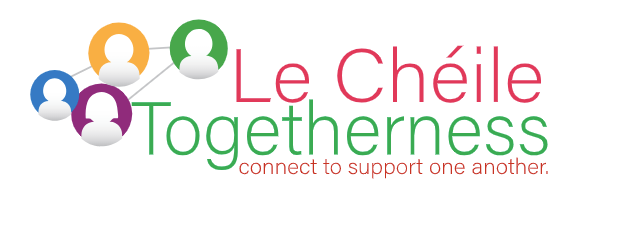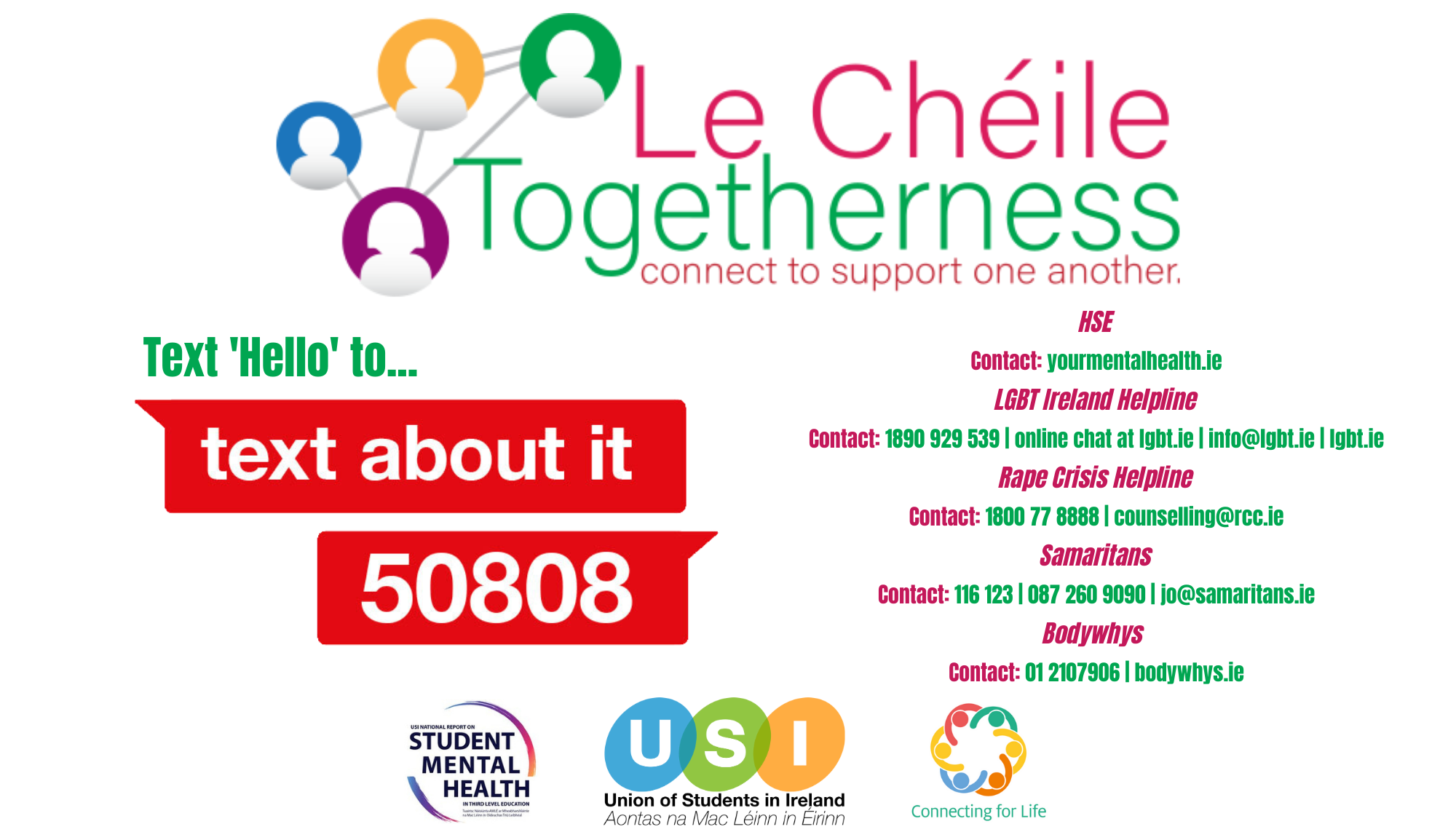 The Challenge of Staying Connected during COVID-19
The Challenge of Staying Connected during COVID-19
We are living in a time where we are more physically apart from people than we ever have been before. Staying connected and supporting one another can help our mental health at any time, but it is especially important during the differing and changing situation of COVID-19.
We know that staying connected people can have a positive impact on us. It reminds us that we are part of a community, whether that’s at home, at work, or in college. Talking about things can both help us to figure things out for ourselves, but when we talk about how we are feeling, we know this can help us to feel better, and often we find we are not alone in how we are feeling. Counselling is one of the most common forms of help for mental health problems because it has been shown that sharing things with another is helpful in reducing many different types of problems.
At the moment, many of us are feeling more anxious or worried. It’s understandable that we might be feeling vulnerable or overwhelmed at times. If we acknowledge our feelings, it can help us to start being able to deal or cope with them.
We all go through things that are hard sometimes, and it can sometimes feel like maybe we should just ‘suck it up’ and get on with things. But everyone has the right to help and support, no matter whether you think what you are going through is big or small. Having support and connection from others can also help prevent us from feeling things like loneliness which can be related to mental health problems.
Loneliness and the Benefits of Reaching Out
In the study conducted by USI into student mental health in 2019, it was found that for students, higher levels of loneliness was associated with higher levels of anxiety, depression and stress – this is likely to be the case even more so now that we are spending more time away from family and friends in order to keep physically safe. That’s why it’s more important than ever to make extra effort and stay connected in a supportive way.
We can often want to appear strong by always saying that things are fine, but there is no weakness in reaching out to someone and saying ‘I’m not ok’, or even ‘things are really hard right now, aren’t they’. Reaching out to one another doesn’t have to result in fixing the problem, but talking about it, and each of you knowing how you and the other person feels can be really helpful. Even talking in general about things you are both interested in can be helpful, because it can help to think about something else. It might seem like having a conversation, or sending a message is a small act, but the effect it can have is much bigger.
We know that lots of students are feeling the same way at the moment. For example, a recent study carried out by SpunOut found that 35% of young people are missing their friends at the moment and are finding that hard. It also found that 16% are struggling with loneliness. However, the same study found that 20% have noted the value of having a network of supportive family and friends has helped them get through the past few months, and 22% feel that quality friendships will be important to their happiness into the future.
This means that young people know how important having connections with other people is, and how hard it can be when we don’t have that support. Students told USI that 35.84% of them had no opportunities to engage with their classmates, which is an outcome of having to move classes online, but which highlights how many people do not have access to their usual ways of connecting with people. They also told us that 77.6% are relying on peers to cope with things right now.
It can be difficult to remember to stay connected now when we are less likely to be able to have that quick five minute chat in a queue for coffee, waiting for a bus or when we aren’t going to the canteen for lunch together, but it’s more important than ever to take the time and reach out, and to respond when others reach out to us. It’s an act of self-care, and an act of helping to care for others.
Mental health
- If you feel like struggling and you need more professional help, contact your college counselling services to arrange an appointment to talk to someone
- For useful resources on your mental health go to the ‘Mind Your Mental Health’ on usi.ie
- HSE’s yourmentalhealth.ie has specific advice on how to mind your mental health during the coronavirus outbreak
- If you feel you are at risk of suicide during the pandemic, call 999/112 or present to the nearest Accident and Emergency Department


Recent Comments